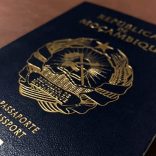Russia proposes bilateral visa-free regime agreement with Mozambique - Embassy
Mozambique among 34 African countries hit as Ecuador revokes visa-free transit

FILE - For illustration purposes only. [File photo: Lusa]
- Ecuador has abolished visa-free airport transit privileges for citizens of 45 countries, including 34 African nations.
- Travellers from these nations must now obtain a Transit Visa to transit through Ecuadorian airports.
- Nigeria, Mozambique, Rwanda, and Ghana are some of the 34 African countries affected, making the continent the most impacted region
Ecuador has announced the cancellation of visa-free transit privileges for citizens of 45 nations, including 34 African countries, in a significant tightening of its immigration and border control policies.
Under the new directive abolishing visa-free transit privileges, travellers from the affected African countries will now require a Transit Visa (Visa de Transeúnte) to transit through Ecuadorian airports, regardless of whether they remain within the international zone.
Previously, citizens of these countries could transit without a visa if they stayed within the international transit area without clearing immigration or customs; however, this exemption has been revoked.
According to Ecuador’s Ministry of Foreign Affairs and Human Mobility, the measure aims to enhance transit regulations and address growing security concerns related to irregular migration.
This policy change will particularly affect travellers making international stopovers in Ecuador en route to destinations across the American continent.
Ecuador’s role as a key transit hub to the EU and U.S. means the new rule will disrupt travel, raise costs, and alter routes for many from Africa and the Global South.
African nations hit the hardest
Out of the 45 affected, 34 are Africa countries, making the continent the most impacted by the policy change. Citizens from the following African countries will now require a transit visa:
・Nigeria
・Ghana
・Egypt
・Sudan
・Ethiopia
・Eritrea
・Somalia
・Democratic Republic of Congo
・Republic of Congo
・Cameroon
・Liberia
・Sierra Leone
・Guinea
・Guinea-Bissau
・The Gambia
・Senegal
・Togo
・Benin
・Mali
・Niger
・Burkina Faso
・Chad
・Central African Republic
・Angola
・Mozambique
・Zimbabwe
・Zambia
・Rwanda
・Burundi
・Uganda
・Algeria
・Morocco
・Tunisia
・South Sudan.
With Ecuador serving as a common transit point to the global north, particularly EU and the US, for many from Africa and Global South, the new rule is expected to disrupt travel itineraries, raise travel costs, and redirect flight routes for affected passengers.
This policy change reflects a broader trend of nations tightening immigration requirements in response to rising global migration flows and associated security risks, with African migrants being disproportionately affected the most.












Leave a Reply
Be the First to Comment!
You must be logged in to post a comment.
You must be logged in to post a comment.